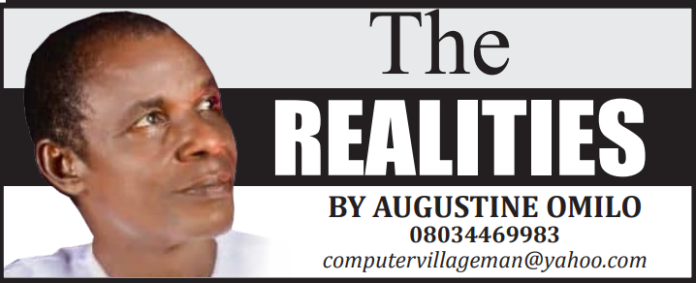Despite the harsh economic challenges already faced by Nigerians, many have continued to insinuate that tougher days await the citizens due to factors such as food insecurity, criminal invasion of farms in the country, high cost of living and unemployment among others. The latest warning comes from the World Bank, predicting a 56% rise in poverty in Nigeria by 2027.
In the light of the forecast, the Nigerian Association of Chambers of Commerce, Industry, Mines and Agriculture (NACCIMA) and the Organized Private Sector of Nigeria (OPSN) are said to have been calling for swift and targeted short-term actions to mitigate the looming crisis and protect the nation’s most at-risk populations.
In the report, the World Bank postulates that about 104 million Nigerians, about 47% of the population were living below the poverty line in 2023, up from 40% in 2018. The report cited sluggish economic growth, high inflation, and rising rural-urban disparities as key drivers of the trend.
Continuing, the World Bank, in the report, predicted that poverty will continue to rise in the coming years, potentially reaching 56% by 2027.
Timely as this warning seems, it is very alarming and calls for government actions to mitigate it. According to a Chinese Philosopher, Confucius (551 BCE – 479 BCE); “in a country well governed, poverty is something to be ashamed of. In a country badly governed, wealth is something to be ashamed of”.
To avert the danger ahead as predicted by the World Bank therefore, all the major components of poverty must be brought down to the barest minimum, using both short and long term measures.
This time calls for government’s increased efforts towards creating an enabling environment for citizens to live in affordable homes. And one of the things required for this to be accomplished is the provision for schemes that would enable estate developers collaborate with governments at all levels towards the development of low cost housing estates that people can access with financial assistance from mortgage banks.
Fighting food insecurity to a winning point remains key to reducing poverty in the land. The Fulani herders must be dislodged from the bushes from where they lay siege on Nigerian farmers. Time has come for the federal government to begin to deploy modern methods of combating crimes – using devices such drones, Closed Circuit Cameras, CCTV and robust communications gadgets.
Besides, roads that lead to areas where farming activities are carried out must be properly positioned for agricultural produce to be transported to the urban centres with ease.
Tackling unemployment requires a holistic approach even as care must be taken to differentiate between unemployment, unemployability and underemployment. The burden of providing employment for the populace must not be left in the hands of government alone.
Once the necessary social amenities such as electricity, good network of roads and agricultural storage facilities are provided for the people, businesses of all kinds will begin to thrive, thereby reducing unemployment.
Emphases must also shift from mere acquisition of certificates from the country’s institutions of higher learning to that of acquiring skills that ensure involvement in entrepreneurial participation in the informal sector.
This will also guarantee acceptance by employers in the organized private sector who are in positions to employ skilled workers.
Banks in the country must be made to embrace modern methods of participation in the growth of economies around the world. Young men and women with good business plans and proposals should be assisted with soft loans for take-offs and recapitalisations.
Meanwhile, the federal government of Nigeria must embrace credible advises from economic experts in addition to those of the president’s economic team.
Along this direction, the government must study with care, a statement that recently emanated from the NACCIMA President, Dele Oye who outlined a 13-point short-term measure to halt and reverse the projected rise in poverty.
These include targeted economic stimulus packages, greater investment in agriculture, expanded access to credit and microfinance, and supportive and predictable tax environment and robust vocational training programs for unemployed youth and women, amongst others.
On Economic Stimulus Packages, Oye who is also the Chairman of the Organized Private Sector of Nigeria stated, “The government should implement well-structured and targeted stimulus packages focused on vulnerable populations.
Such measures should include cash transfers, food assistance programmes, and direct support to small and medium enterprises (SMEs) to stimulate job creation”.
An African adage states that; “a war with pre-determined date of commencement has already lost the capacity to cause the death of a cripple”. In this vein, Nigerian leaders with this privilege of knowing enough of the impending crisis ahead owe the citizens a duty to avert it.


